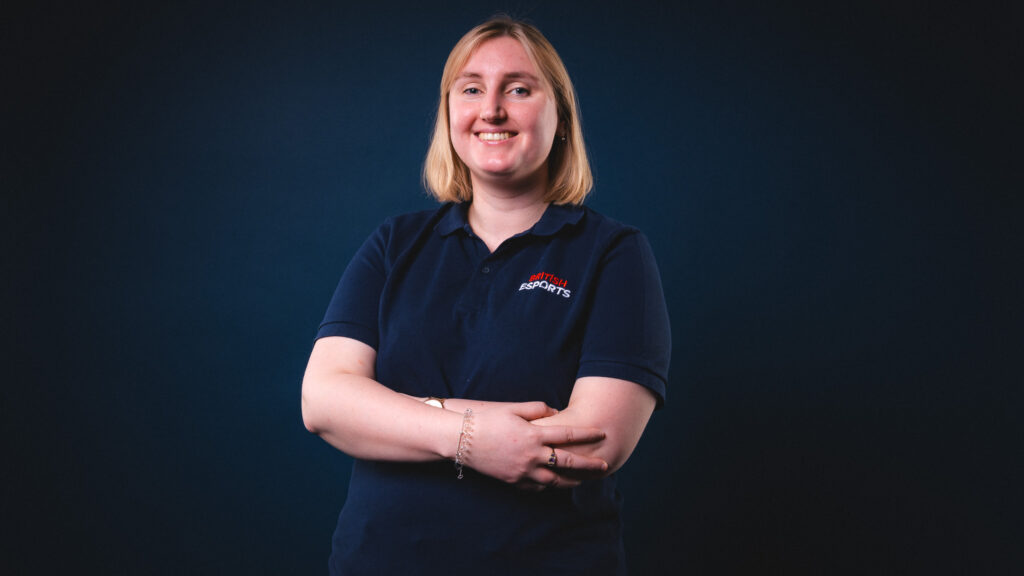I’d like to talk about women in esports, the challenges they face in this typically male-dominated industry, and the inspiring people working to level the playing field. I was lucky enough to get some insights on this from Alice Whorley, Head of Operations at the British Esports Federation and Co-Founder of Women in Esports.
There is a common misconception that women are not interested in gaming. In truth, there are approximately 3.1 billion gamers worldwide, a staggering 1.39 billion of whom identify as female. This accounts for about 45% of gamers, a figure that only seems to increase year on year. Yet according to statistics by Women in Gaming, only 16% of executive teams at the global leading 15 games companies are women. Not only that, but a recent study undertaken by the University of Glasgow, analysing the dialogue of more than 13,000 characters in 50 popular role-playing games, found that male characters contribute roughly twice as much dialogue as their female counterparts.
Given such a backdrop it is no surprise that esports—a burgeoning offshoot of the gaming industry—has its fair share of inequality. Currently, the top-earning female-identifying player (earning over $465,000) doesn’t even rank within the top 300 earners on record, the highest of whom has amassed a whopping $7,184,163.05. Barriers to esports are numerous and disproportionately affect women and people from marginalised communities. But thanks to the collective efforts of groups such as Women in Esports, Women in Games and Black Girl Gamers, huge strides have already been made. In 2023 alone, prize money for women’s esports tournaments surpassed $2 million and generated an incredible 28 million hours of viewing time (a marked 15% increase from the previous year).
The Women in Esports initiative advocates for inclusivity, diversity and equal access within esports for women and those of marginalised genders. By delivering “events, dedicated tournaments, community activations and educational content” they not only encourage those who might otherwise feel unwelcome into this modern genre of sport, but also nurture a community for those already within it. One such example is their hugely successful Lioness Cup 2023, championing female Valorant players by providing them with well-deserved publicity. This is one of many emerging women’s tournaments within the industry.
Alice Whorley, the co-founder of Women in Esports, was kind enough to speak more with me about their initiative…

Rhianne: What pushed you and your co-founder to start this initiative?
Alice: Throughout our conversations and work within grassroots esports, in particular with schools and colleges, we realised there was more work that we could do in helping young people understand opportunities, and why inclusivity and representation matter. This came in different forms such as highlighting role models in different careers to help young students understand the career pathways available, in-depth articles on overcoming barriers and creating events and tournaments to enable the community to connect.
R: Do you feel the industry is heading in the right direction in terms of inclusivity?
A: I believe so, but it is a long road and there is still much more that can be done for esports to feel truly inclusive and diverse. There are certain outdated stereotypes and stigmas that are unfortunately prevalent in the esports and wider gaming industries but these are being challenged daily by more companies, events, and teams who are working on projects to help support the scene. Change does not happen overnight […] At British Esports and Women in Esports, we believe that by working with like-minded individuals, initiatives and organisations, we can help each other uplift, inspire and create better standards.
R: What tips would you give to a woman or person of marginalised gender hoping to get into esports?
A: My biggest advice to anyone looking to get into esports would be to always give it a go! Esports is for everyone, and no matter who you are, or how you identify, the industry has a space for you. Figure out which part of the industry excites you the most, or is an area you feel you have particular expertise in, or what you want to learn. Make sure to network, look at internships and freelance roles, and develop your skills. Know your worth. I think a big struggle for many people, particularly myself in the past, is knowing your own strengths. There are amazing women and people of diverse genders doing fantastic work in the esports space.
R: Was it difficult to gain interest and backing for the Lioness Cup?
A: We did not have any difficulty in gaining interest or support for the Lioness Cup! We chose Valorant as the main title as it has great representation in-game through the different agents, but also in the talent team and support structure of the esports tournaments at the professional level through the Game Changers circuit. The support and excitement for the Lioness Cup have been overwhelmingly positive, as well as the feedback from the community. In the past two iterations of the competition we have seen the engagement continue to grow, and with further support from Riot Games having this past 2023 Lioness Cup as an official OFF//SEASON event, which is the first of its kind for a women and marginalised genders tournament in the EMEA region. Overall we had over 250k minutes watched, 8 co-streams, and 12k live views for the 2023 Lioness Cup.
If this interests you, please come along to one of the events or talks happening as part of the Yorkshire Games Festival returning to venues across Bradford 7–10 March 2024. Hear from industry professionals, network and celebrate all things gaming.